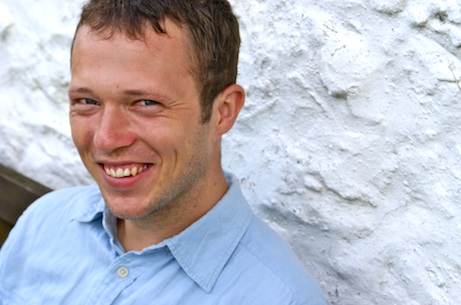
Orian Welling has just completed his research on engine efficiency and has embarked on a fellowship with Democrat Representative Ron Kind.
Orian Welling’s PhD research on increasing engine efficiency is the result of a lifetime of interest in renewable energy and efficient transportation.
Indeed, Orian was interviewed for the Gates Cambridge Scholarship while completing a bicycle trip from South Africa to Egypt, his second epic cycling trip. Before starting his undergraduate degree, he pedalled 15,000 miles from Alaska to Argentina. The aim of these trips was to learn about people and places and to develop a sense of how they live so he can develop technologies that will work for them.
Orian hopes eventually to start his own business doing engineering research on areas such as transport and energy in the mid-west, where he comes from. To achieve this goal he is starting work this August at the Boston Consulting Group, where he will be learning about business and says he may have the opportunity to work on some projects in the automotive sector.
In the meantime, Orian is finding out how government works with an eye to a possible future role in policy development. Before leaving Cambridge earlier this year, Orian Welling [2009] applied for a fellowship in the US House of Representatives. Working in the office of his congressman, Rep. Ron Kind, Orian is researching tax legislation. He says: “I have a long term interest in public service and this was a perfect opportunity to get a taste for how government works and to get a sense of what might be the best way to contribute even if I don’t intend to work on policy issues for many years.”
Combustion engines
In his PhD, Orian studied combustion instabilities in down-sized gasoline engines, having received a £131,000 grant from BP. The work aimed to overcome limitations in these energy-efficient engines, which are starting to be adopted by car manufacturers such as Ford. “We came up with good results which are very promising for the future and are being followed up on.”
Orian’s interest in energy efficient transportation started early. “In 1990 my parents and some friends helped to start the Midwest Renewable Energy Fair which has happened annually since then with attendance growing to around 25,000 people a year,” he says. “As a kid I was fascinated by the solar cars and biofuel vehicles, that fascination hasn’t ended.”
His family has clearly played a major role in his career path and encouraged his curiosity “even when it meant taking apart the family VCR and not getting it back together”. He adds: “Their interest in renewable energy also really inspired me and got me interested in efficient transportation technology. Even today nearly half the material I read about energy efficiency is stuff my dad finds and sends to me.”
Orian was involved in a number of energy efficiency projects at MIT. He converted a vehicle to run on waste vegetable oil, designed a bicycle-powered laptop charger for developing countries, designed a solar water pumping system for a remote village in Indonesia, and prototyped a portable solar cooker for use in Tibet (which is now being sold by One Earth Designs).
Gates Cambridge
While doing his PhD, Orian became fully involved with the Gates Cambridge Scholars Council, of which he was president from 2010-2011. “It’s a fantastic community,” he says. “People I have met through Gates Cambridge will be lifelong friends. It’s such an international interdisciplinary group and one where you know that everyone shares the same mentality that they want to use their skills in different disciplines to improve the world in some way. It’s quite unique. I feel I could fly to any place in the world and have someone to meet up with and learn about what is happening locally.”












